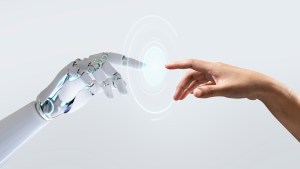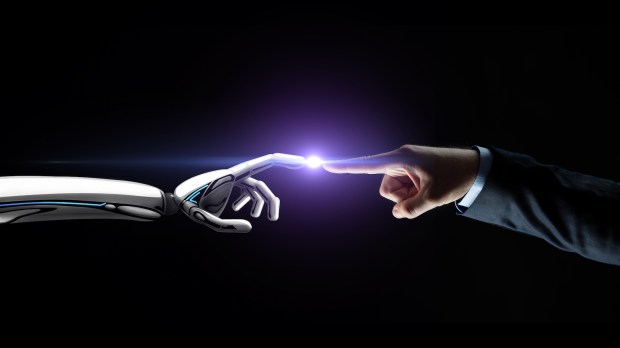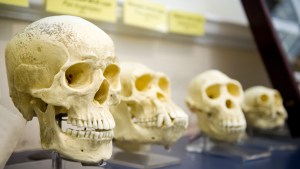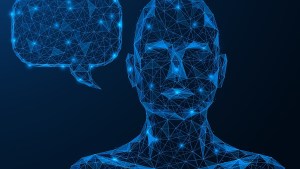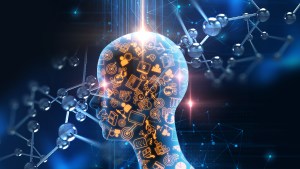This article is provided by the Magis Center
In the vast expanse of cosmic history, we observe a remarkable evolutionary progression — from the inanimate laws of physics, the ordered structures of chemistry, and the dynamic complexity of biology to the profound intricacies of conscious thought. Each phase has given rise to the next, marking a journey toward ever-increasing complexity.
This post will delve into this fascinating evolutionary arc, paying particular attention to the unique evolution of consciousness and the implications of the artificial intelligence (AI) era on our cognitive development.
The evolution of the cosmos: A very brief account
The genesis of our observable universe, characterized by the phenomenon known as the Big Bang, heralded the advent of physics. Governed by basic physical laws, the universe, through its nascent stages, followed a precise order. These laws provided the foundation upon which the intricate discipline of chemistry could flourish. Chemistry, in turn, gave birth to a myriad of elements and complex molecules, forming the basis for the next stage in our cosmic journey.
Biology emerged from the complexity of chemistry. Simple organic molecules evolved into intricate organisms, marking an unprecedented leap in informational and behavioral complexity. At some point in this biological timeline, a significant transition occurred — the emergence of sentience. Sentient beings, imbued with subjective experiences and feelings, became capable of perceiving and interacting with their environment in profoundly nuanced ways. This awareness of surroundings served as a precursor to another monumental evolutionary leap — the advent of rational consciousness. This stage, characterized by self-awareness, introspection, and the ability to reason, ushered in an entirely new scale of complexity and depth in our cosmic journey and presented a new wrinkle in the evolutionary process. Unlike its predecessors, the evolution of rational consciousness was shaped not just by natural pressures but also by social and cultural forces, spurring it towards greater intricacy and environmental fitness.
The influence of artificial intelligence on cognitive evolution
In our modern era, artificial intelligence has introduced a new dimension to this progression. AI, with its potential to replicate and even surpass human cognitive abilities, imposes new pressures and challenges. These challenges stimulate the further evolution of our cognitive capacities, pushing us towards new frontiers of knowledge and understanding.
However, while AI may excel in many areas, it lacks certain fundamental human characteristics — most notably, the capacity for self-awareness. This unique aspect of human consciousness fosters empathy, imagination, purpose, and love — qualities that imbue our existence with richness and depth.
Love is essential for wisdom
The inability of AI to experience these uniquely human cognitive qualities, and in particular love, has significant implications. Christian tradition posits that wisdom is not solely a product of knowledge but also love. It is this intertwining of knowing and loving that gives wisdom its transformative power. Love is perceived as the ultimate purpose, the spiritual gravity that draws us together in a collective quest for unity with God and one another. It is this love that AI, despite its computational prowess, is unable to comprehend. Without the ability to love, AI can exercise only a cold, calculative form of knowledge devoid of wisdom’s richness.
Christian tradition posits that wisdom is not solely a product of knowledge but also love. It is this intertwining of knowing and loving that gives wisdom its transformative power.
The value of human qualities in the age of AI
The evolution of consciousness from the relatively simple laws of physics to the profound intricacies of human thought and emotion is a journey of unparalleled complexity and significance. As we navigate the dawn of the AI era, we grapple with new pressures, challenges, and opportunities, all of which contribute to our ongoing cognitive evolution.
However, it is crucial to recognize the unique qualities that characterize human consciousness, including self-awareness, love, and the capacity for wisdom. These qualities, which shape our shared pursuit of truth, goodness, and beauty, cannot be replicated or replaced by AI.
From the perspective of Christian tradition, wisdom, formed from the union of knowledge and love, serves as our guiding compass in this quest. While AI may amass vast amounts of data and knowledge, it lacks the ability to truly love, thereby missing out on the holistic wisdom that humans can attain. Wisdom leads us forward, guiding our shared journey to vistas previously seen only by saints and sages.
